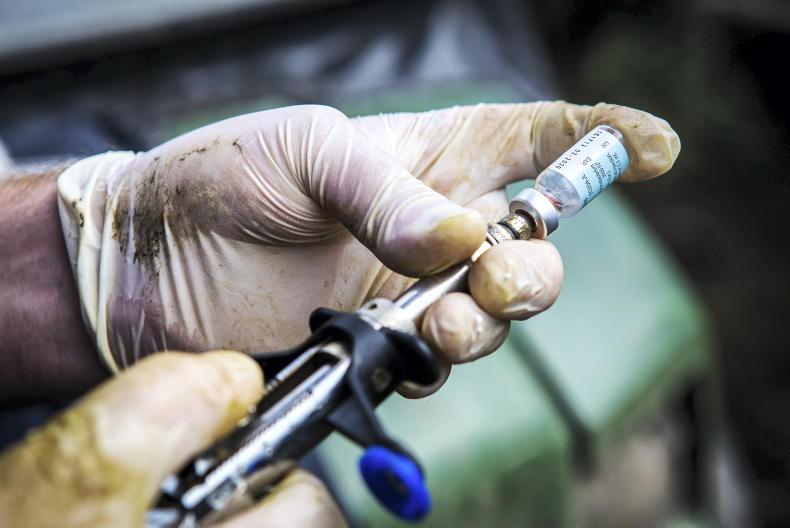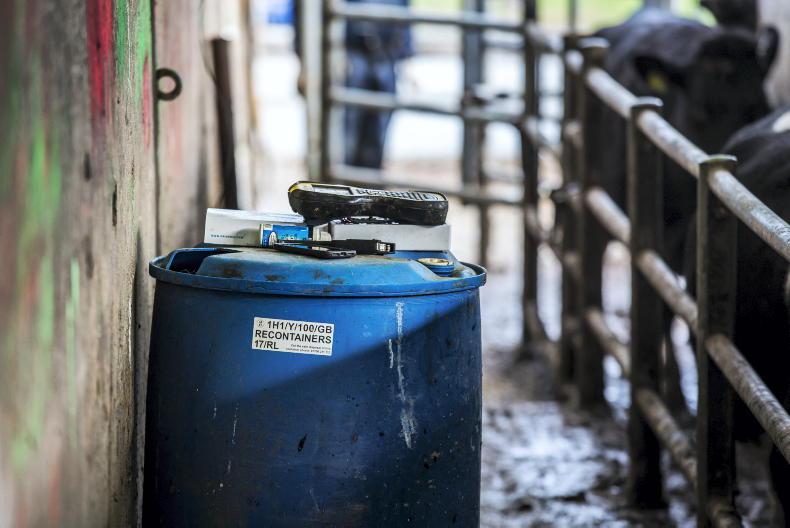Back in 2014, former NI Agriculture Minister Michelle O’Neill established a TB Strategic Partnership Group (TBSPG) with a remit to develop a long-term plan to eradicate bovine TB from the local cattle population.
The final report published by this expert group in 2016 made wide-ranging recommendations, many of which form the basis for the latest TB strategy launched by current Agriculture Minister Edwin Poots at the end of March 2022.
The TBSPG had recommended that DAERA undertake a badger cull in TB hotspot areas.
That has now evolved into a DAERA plan where the Department will oversee a cull of badgers by controlled shooting undertaken by farmer-led groups.
The cull areas will be defined by DAERA, and limited to parts of NI where there is evidence of a large badger population and significant incidence of the disease in cattle. The ultimate aim of the proposed cull is to reduce the infection load in the badger population, in order for a follow-up programme of badger vaccination to be successful.
The evidence for perturbation came from England
However, the final policy position is not quite what the TBSPG envisaged. It had recommended that in a 1,500m area around cull zones, a badger vaccination policy be implemented to mitigate against the potential of “the perturbation effect.”
The evidence for perturbation came from England, with some research showing that when badgers are culled, there is a change in the organisation and territorial behaviour of populations, leading to increased movement of badgers into and out of the cull zone.
However, “the perturbation effect” has not been observed in culls undertaken in the Republic of Ireland, and no change to roaming behaviour was established when badgers were removed in the five year Test, Vaccinate or Remove (TVR) research study in NI. As a result, the TBSPG recommendation was not progressed.
Compensation
Aside from a badger cull, the other issue that tends to attract most debate is the compensation paid to farmers for reactor animals. Over the years, various auditors have criticised the approach in NI, where farmers are paid the full market value for reactors removed at a test.
Back in 2011, the Department wanted to introduce a system of table values for reactors, similar to that used in England, but that move was effectively blocked by MLAs on the agriculture committee at Stormont.
In its 2016 report, the TBSPG recommended a draconian cap on compensation at £1,500 for commercial cattle and £1,800 for pedigree animals, with one pedigree stock bull limited to £3,500.
Cutting compensation remains a live issue
It also suggested that a reduction in the percentage of compensation paid should be part of a future discussion.
Cutting compensation remains a live issue, and in 2021, DAERA proposed a cap of £5,000 per animal, and reducing payments to 90% of market value for all reactors in year one of a new policy, moving to 75% from year two onwards.
But given the pressures on the farming industry due to the COVID-19 pandemic and other global issues, Minister Poots has decided not to implement these compensation changes for now. They will be reviewed two years after the new TB strategy comes into force.
What has happened since 2016?
While most of the recommendations made by the TBSPG in 2016 have yet to be implemented, the final DAERA strategy document published in March 2022 outlines a number of measures that the Department has taken.
These include a stricter interpretation of the TB skin test, improved disease surveillance at all cattle abattoirs and increased use of the interferon gamma blood test for bovine TB.
New partnerships to tackle TB
One of the key issues that was tackled by the TBSPG was the need to change the culture surrounding the TB programme.
Rather than it being seen as something government imposed on farmers, it wanted to encourage shared responsibility for the disease across the industry.
It recommended a new TB Eradication Partnership (TBEP) be established to work alongside DAERA, which would include representatives from farming, private veterinary, science, food processing and the natural environment.
DRTs
Under the TBEP, there would then sit three Regional Eradication Partnerships (REPs), below which there would be Disease Response Teams (DRT), set up to respond to a serious TB outbreak in a specific area.
The final DAERA strategy, which was published in March 2022, includes a commitment that the first of the three REPs will now be established
These DRTs would include local DAERA vets, farmers, private vets and nature conservationists, and their role would include discussing disease control measures with affected farmers and making recommendations to the REPs on appropriate control measures.
Of these various bodies, the TBEP was established in June 2018, with the group going on to produce an advice paper to DAERA in September 2019.
The final DAERA strategy, which was published in March 2022, includes a commitment that the first of the three REPs will now be established, with DRTs created “when and where required”.
The two further REPs will be formulated “in the medium term”.
Compulsory use of blood test for TB
Unlike in Britain, where the government has made it compulsory to use the gamma interferon blood test to supplement the traditional skin test in certain situations, its use remains voluntary in NI.
The DAERA final strategy document outlines a number of potential scenarios where the blood test will be used
However, the TBSPG recommended in 2016 that if DAERA considers it necessary, it should require the blood test to be used on a farm.
That is now set to happen in NI, with DAERA to engage with stakeholders with a view to “agreeing criteria” for the test.
The DAERA final strategy document outlines a number of potential scenarios where the blood test will be used, including herds with multiple reactors (over four), or those with ongoing breakdowns.
While the gamma test is more sensitive than the skin test (and is therefore more likely to pick up TB infected animals), it has lower specificity, resulting in a higher number of false positives.
Risk based approach to restocking
In their 2016 report, the TBSPG “strongly recommended” that DAERA should move to prevent restocking of all TB breakdown herds until after the first herd re-test, pointing out that allowing farmers to buy in cattle without re-testing breached EU law.
That EU directive has now been replaced by the EU Animal Health Law in April 2021, which also requires cleansing and disinfection to be complete before re-stocking.
In its final strategy, DAERA confirmed that it will develop, in consultation with industry, a new “risk-based approach” to permit restocking to take place following a TB breakdown.
The Department is also to review, in conjunction with the TBEP, policies around the use of Alternative Control Herds (ACH).
These herds do not have to do routine TB testing, and can take in animals from infected herds, but the various conditions in place mean that uptake to-date has been low.
Improved biosecurity and herd health
The DAERA strategy document published in March 2022 also includes a number of actions under development that could have significant implications for farmers.
Those include the use of statutory improvement notices, to be developed alongside the TBEP. The improvement notices could be used where a farmer with a breakdown herd is not following advice, and is putting other herds at risk.
The Department is to work with industry to try to ensure compliance with the rules
The Department will also work with industry to develop segregation notices, to be used by DAERA staff, which would specify where a breakdown herd must graze their livestock.
On the movement of livestock to markets, there is already legislation in place requiring vehicles to be cleaned and disinfected immediately after use, but the DAERA document recognises there is a “difficulty” in providing enough DAERA staff to carry out inspections.
The Department is to work with industry to try to ensure compliance with the rules.
In their 2016 report, the TBSPG also recommended that livestock marts be encouraged to display as much information as legally possible on the disease history of the selling herd (so-called ‘informed purchasing’).
That issue remains to be progressed, with the Department to “invite industry to lead in the introduction of an informed purchasing approach.”










SHARING OPTIONS